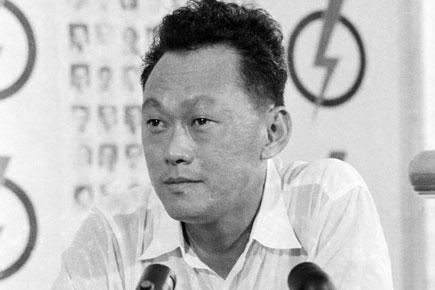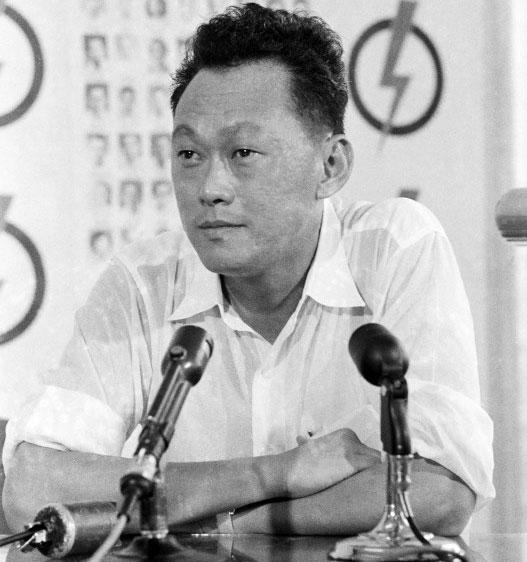Lee Kuan Yew, the first prime minister of Singapore, and one of the most influential political figures in Asia died on Monday after a prolonged battle with pneumonia. Here are some interesting facts about his life and times

Lee was born into a wealthy Chinese family that had lived in Singapore since the 19th century.
ADVERTISEMENT
He did his schooling in Singapore before studying law in the University of Cambridge in Britain.
In 1950, Lee was admitted to the English bar, but chose to return to Singapore, instead of pursuing a career in Britain.
While in Britain, Lee embraced the ideology of socialism. In the early 1950s, he allied with individuals like David Saul Marshall and Lim Yew Hock and raised the pitch for a constitutional reform in the country.
In 1954, he floated the People’s Action Party (PAP).

In a picture taken on June 5, 1959 Lee Kuan Yew, leader of 'People's Action Party' (C) poses after winning the elections in Singapore. Lee served as prime minister from 1959, when Singapore gained self-rule from colonial ruler Britain, until he stepped down in 1990 in favour of his deputy Goh Chok Tong, who in turn handed power to Lee Hsien Loong in 2004. Pic/ AFP
Elections were held under Singapore’s new constitution in May 1959, and Lee called for social reforms and eventual union with the erstwhile Federation of Malaya.
Lee’s party won a decisive victory, gaining 43 of the 51 seats, but Lee refused to form a government until the British freed the left-wing members of his party who had been imprisoned in 1956. After their release, Lee was sworn in as prime minister on June 5, 1959, and he formed a cabinet.
He introduced a five-year plan calling for slum clearance and the building of new public housing, the emancipation of women, the expansion of educational services, and industrialisation.
In 1962, Lee led Singapore into a merger with Malaysia, but three years later, Singapore left the union. Lee resigned as prime minister in 1990.
Lee is survived by his two sons, current Singapore Prime Minister Lee Hsien Loong, 63, and Lee Hsien Yang, 57, daughter Lee Wei Ling, 60, seven grandchildren and two siblings.
 Subscribe today by clicking the link and stay updated with the latest news!" Click here!
Subscribe today by clicking the link and stay updated with the latest news!" Click here!






